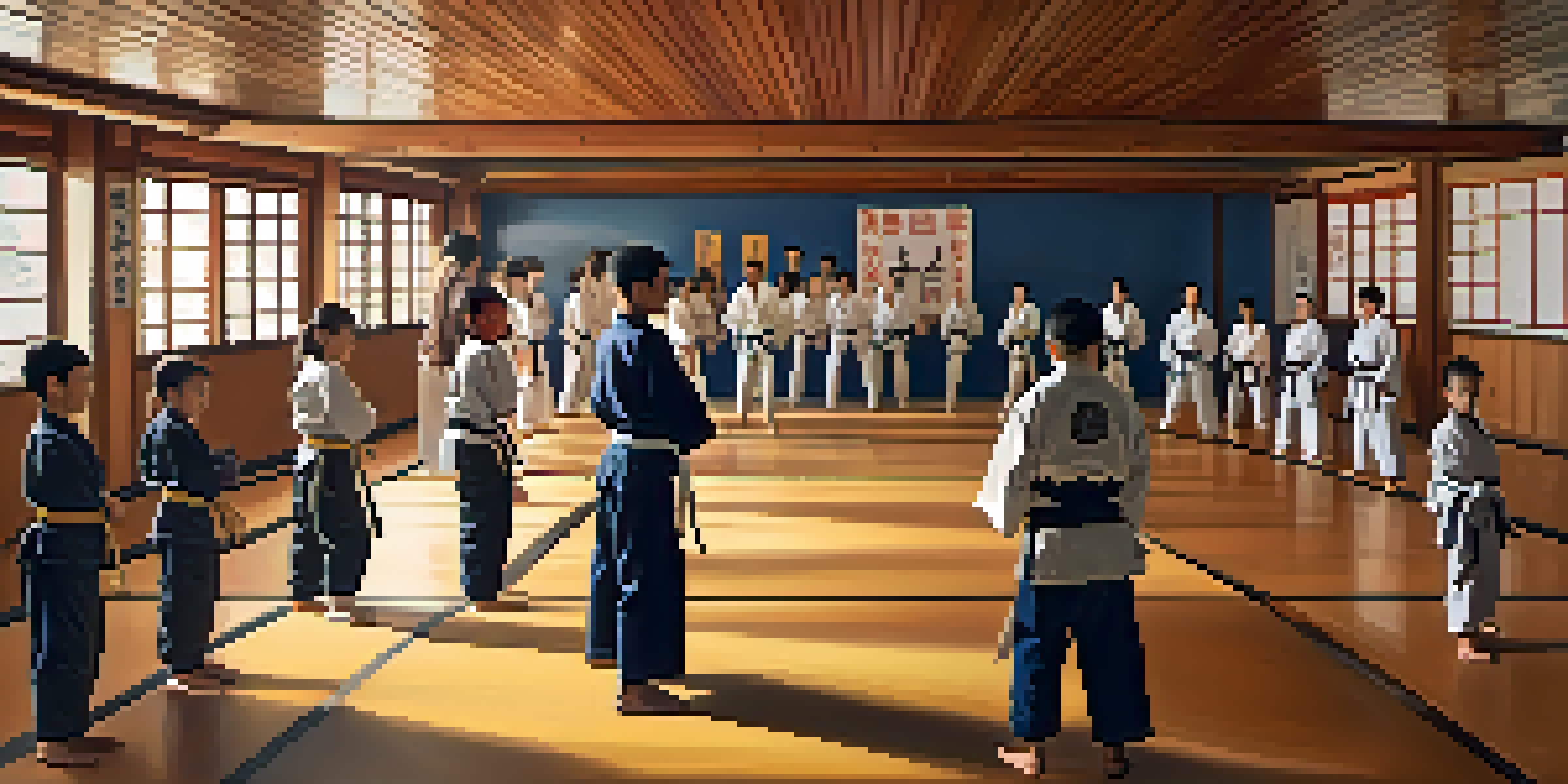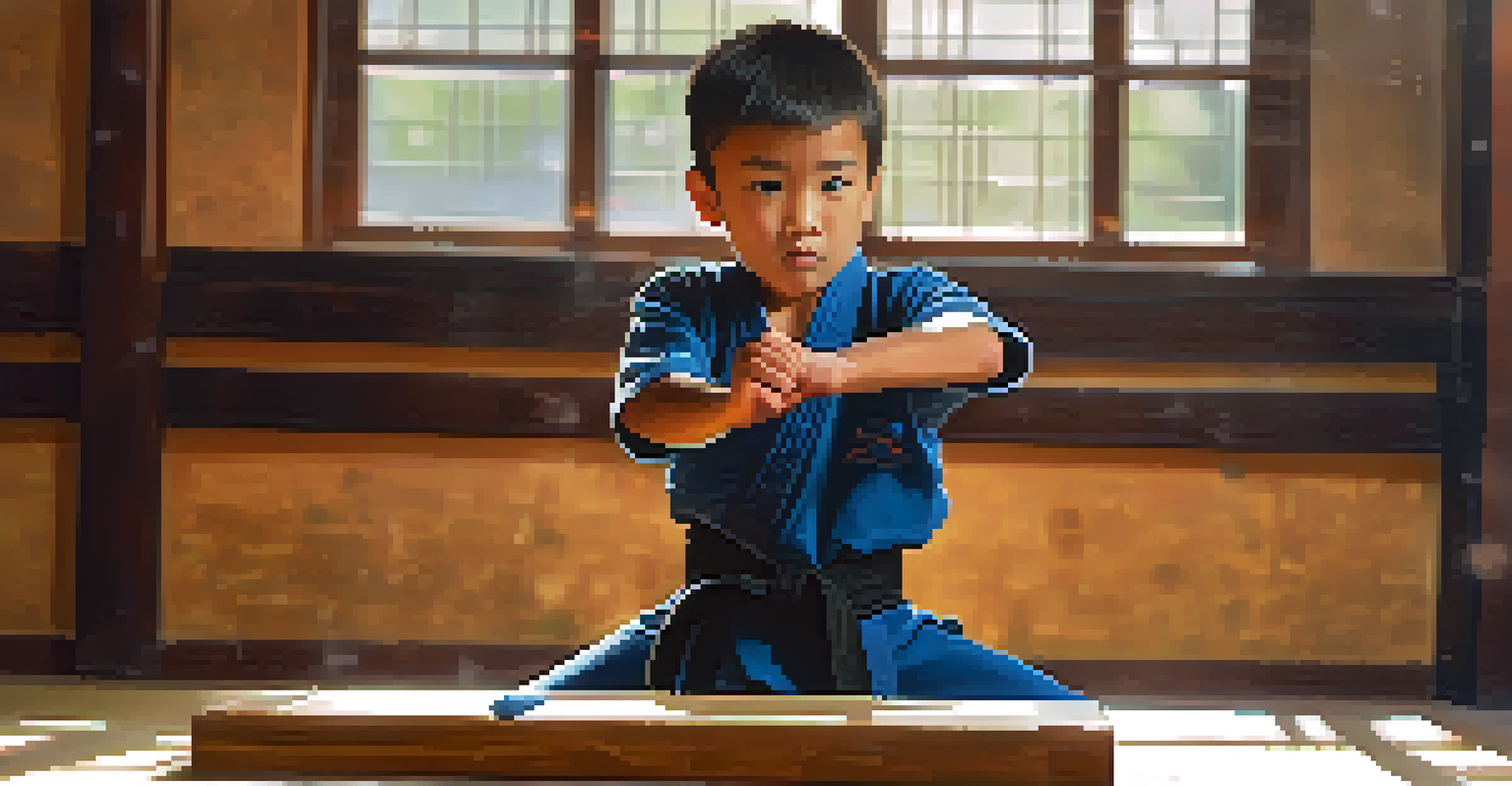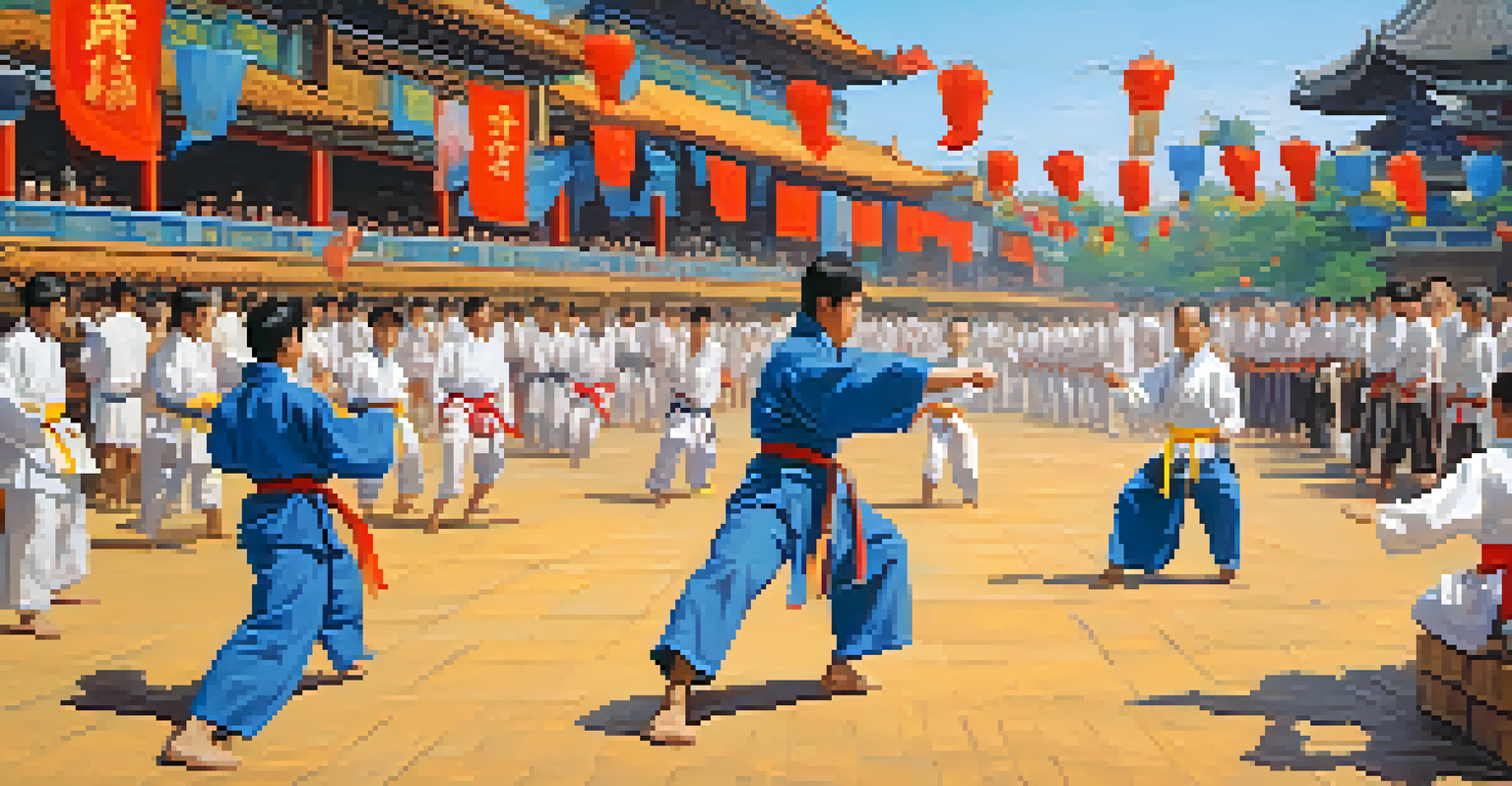The Impact of Martial Arts on Local Community Development

Martial Arts as a Tool for Community Engagement
Martial arts programs often serve as a hub for local communities, drawing people together from diverse backgrounds. These classes create a shared space where individuals can learn not just physical skills but also valuable life lessons. By participating in martial arts, community members foster connections that may not have otherwise developed.
The ultimate aim of martial arts is not having to use them.
In many neighborhoods, martial arts schools become safe havens where people of all ages can gather. This not only promotes physical fitness but also enhances social interaction, breaking down barriers. As students train together, they build camaraderie, creating a sense of belonging and community pride.
Moreover, these programs often host events, tournaments, and exhibitions that invite the entire community to participate. Such gatherings not only showcase talent but also encourage family involvement, making martial arts an integral part of local culture. This engagement helps strengthen community ties and fosters a spirit of collaboration.
Promoting Discipline and Responsibility in Youth
One of the most significant benefits of martial arts is its ability to instill discipline and responsibility in young practitioners. Classes often emphasize respect for instructors and peers, fostering a sense of accountability. This structured environment helps youth develop self-control, which can translate into better behavior in school and at home.

By committing to regular training, young martial artists learn the importance of dedication and perseverance. They understand that progress takes time and effort, teaching them to set goals and work towards achieving them. This mindset can be invaluable, empowering them to tackle challenges in other areas of life.
Community Building Through Martial Arts
Martial arts programs foster connections and create safe spaces for individuals from diverse backgrounds, enhancing community pride.
Furthermore, many martial arts programs incorporate community service initiatives, encouraging students to give back. This not only reinforces the values of empathy and kindness but also helps instill a sense of pride in contributing to their communities. As youth become more engaged, they often inspire others to join in.
Fostering Inclusivity and Diversity
Martial arts training promotes inclusivity, welcoming individuals from various backgrounds, ages, and abilities. These programs often celebrate diversity, creating an environment where everyone feels accepted. This sense of belonging can be particularly impactful for marginalized groups, helping to bridge social divides.
Martial arts is not just about the fight; it’s about the journey of self-discovery.
The multicultural nature of martial arts allows participants to learn about different traditions and philosophies, enriching their understanding of the world. For instance, karate, judo, and capoeira each have unique histories that practitioners can explore. This cultural exchange fosters mutual respect among community members.
As individuals train together, they share experiences and perspectives, which can lead to lifelong friendships. These connections help break down stereotypes and promote understanding, making the community stronger and more united. Ultimately, martial arts can be a powerful catalyst for social change.
Building Confidence and Self-Esteem
Martial arts training is known for its ability to boost confidence and self-esteem among practitioners. As students learn new techniques and achieve belt promotions, they experience a sense of accomplishment. This newfound confidence often extends beyond the dojo, positively impacting their daily lives.
Through sparring and competition, individuals learn to face fears and overcome challenges. Each success, no matter how small, builds resilience and reinforces the belief that they can achieve their goals. This is especially important for young people, who may struggle with self-doubt in other aspects of their lives.
Discipline and Growth in Youth
Martial arts instills discipline and responsibility in young practitioners, empowering them to set goals and contribute positively to their communities.
Moreover, many martial arts instructors actively encourage and celebrate achievements, creating an uplifting atmosphere. This supportive environment fosters not only individual growth but also encourages students to uplift each other. As confidence grows, so does the overall positivity within the community.
Enhancing Physical and Mental Well-Being
Participating in martial arts offers numerous physical health benefits, including improved strength, flexibility, and cardiovascular fitness. Regular training sessions can help combat obesity and promote a healthier lifestyle. This emphasis on fitness can lead to a more active community, reducing healthcare costs in the long run.
In addition to physical benefits, martial arts can also contribute to mental well-being. The focus required during training helps practitioners develop mindfulness, reducing stress and anxiety. Many individuals find that the discipline practiced in martial arts translates into better focus and concentration in their daily lives.
Furthermore, martial arts often incorporate breathing techniques and meditation, promoting emotional regulation. This holistic approach to health encourages individuals to care for their minds as well as their bodies. As more community members embrace these practices, overall community health improves.
Creating Economic Opportunities
Martial arts schools often create job opportunities within the community, from instructors to administrative staff. These businesses contribute to the local economy while providing valuable services. Additionally, as schools grow, they may hire more staff or expand their facilities, further boosting local employment.
Local martial arts events, such as tournaments and exhibitions, can also stimulate economic activity. These events draw participants and spectators, benefiting nearby businesses like restaurants, hotels, and shops. This influx of visitors can lead to increased sales and stimulate community development.
Economic Benefits of Martial Arts
Martial arts schools generate local job opportunities and stimulate economic activity through events and community partnerships.
Moreover, successful martial arts schools often engage in partnerships with local organizations and schools. By collaborating on initiatives, such as youth programs or self-defense workshops, they contribute positively to the community while expanding their reach. This symbiotic relationship fosters economic growth and enhances community resilience.
Encouraging Lifelong Learning and Growth
Martial arts is not just a sport; it's a lifelong journey of learning and personal growth. Practitioners of all ages can continue to refine their skills and explore new disciplines, fostering a culture of continuous improvement. This commitment to learning can inspire community members to pursue education and self-improvement outside the dojo.
As individuals progress through belts and ranks, they develop a growth mindset that encourages them to embrace challenges. This attitude can translate into other areas of life, such as academics and careers. The resilience and determination gained through martial arts training can empower individuals to tackle obstacles head-on.

Additionally, martial arts programs often offer workshops and seminars, providing opportunities for skill enhancement and education. These events not only enrich participants but also strengthen community bonds as members learn together. By promoting lifelong learning, martial arts contribute to the overall development of a vibrant community.